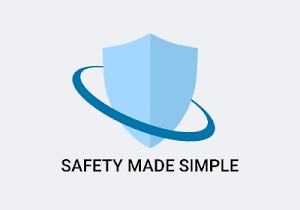Mental Health Training in the Workplace
If you suffer a cut or a burn in the workplace, your first reaction will be to call on the office first aider to help you out. So, when your mental health is suffering, who can you call out to for help? Particularly when it’s so vital to care and look after your mental health.
Having a mental health first aider (MHFA) in your workplace give employees a person that they can go and confide in if things are feeling too much for them. Your MHFA will then seek to help and put that employee in touch with the appropriate authorities who will be able to help them.
A MHFA will also be trained to look for mental health symptoms in other colleagues that could indicate that they are suffering from some problems and might need some help. This person will be non-judgemental and will keep everything completely confidential. Which will make it easier for employees to contact the MHFA in their workplace.
What Are the Benefits of Having a MHFA in the Workplace?

While mental health well-being wasn’t well understood in the past, these days we know that our employee’s mental health is just as important as their physical health. In fact, if left untreated, mental health disorders such as anxiety and depression can lead to long-term absences in your work force.
So, by hosting mental health training and having at least one MHFA in your workplace, it means that your employees know that you are offering them a safe place to confide and perhaps even seek help if they’re not comfortable speaking to family for friends. Plus, by having a workplace that openly looks after the mental health well-being of staff, your staff turnover may improve.
Are Mental Health First Aiders Mandatory?

At the moment, unlike a regular first aider, there is no legal requirement for an employer to conduct mental health training or appoint a MHFA. Instead, it is really up to that business to decide whether or not to provide training.
This could easily change in the near future, though, which makes it a very sensible choice for workplaces to start training now. Plus, more than that, a workplace that understands mental health makes for a very desirable place to work, meaning people are more likely to apply for jobs with you as well as staying loyal to your company.
Common Signs of Underlying Mental Health Problems
As part of their training, yourself and employees will be able to spot some of the common signs of problems in your workforce. These can include:
1: Changes in Character
Staying in such close proximity to those we work with on a regular basis, it makes sense that you come to know that person very well. Which will allow you to spot any changes in characters that could point to towards that person suffering in silence.
Common signs could be that person being irritable or acting particularly anxious, yet it’s important to note that changing personality to be overly-joking or laughing all the time could also be a sign. As here the person could be hiding depression or stress by acting the opposite.
2: Isolating Themselves from Others
Generally, a workplace will like to organise social events such as Christmas parties or even just a few drinks after work. Even a few of you enjoying lunch together and chatting or having a quick cup of tea and a biscuit in the afternoon are all normal aspects of being social at work.
So, if someone suddenly starts avoiding these and spending long periods of time alone, it could be a sign of something underlying going on.
3: Changes in Sleeping Patterns
Often, in the morning, employees will chat about their evening beforehand and how they slept. Meaning we can actually have quite an in-depth knowledge of each other’s sleeping patterns. If someone is sleeping less or more than usual, it could be cause for concern.
4: Eating Differently
Like knowing each other’s sleeping patterns, your colleagues will likely know about your eating habits. Especially when so many of us are always on – and breaking! – our diets. If someone who doesn’t eat a lot, starts snacking endlessly or perhaps someone seems to have lost their appetite altogether, it could well be a sign of a mental health concern.
5: Changes in Work Quality
As managers or supervisors, you will know the quality of the work those under you usually provide. Which means, if this quality takes a dive, you will be the first to notice. This could be a one-off, however, repeated dips in work quality is also a sign of an employee being distracted because of stress or similar.
Other colleagues may also be able to spot mental health changes if someone is acting strange or confused, making mistakes unlike them due to concentration. In which case you might wish to consider notifying a manager about your worries.
6: Looking or Acting Sad
While people can be extremely good at hiding any mental health symptoms from others, this is an exhausting thing to do and that person won’t be able to keep this façade up all the time. So, when someone is working and they think no one is watching, you can usually see if they are looking sad or particularly low.
These mental health symptoms and your employees knowing about them, makes it easier for vulnerable staff to be approached and helped. Which could potentially safe a life. As well as training in this way, signposting appropriate bodies and a confidential way for people to contact someone about their own health, can really help inspire employees to seek help.
How to Appoint a MHFA and Conduct Mental Health Training in the Workplace 
Mental health training courses through a professional company is something that you should consider for all of your employees. After this general training, you will them be able to look for any volunteers who may wish to take their training further to become a mental health first aider.
If this is something you would like to implement in your business, contact us here at Keep Safe Solutions and we will talk you through our mental health course and how it could benefit your team.

























